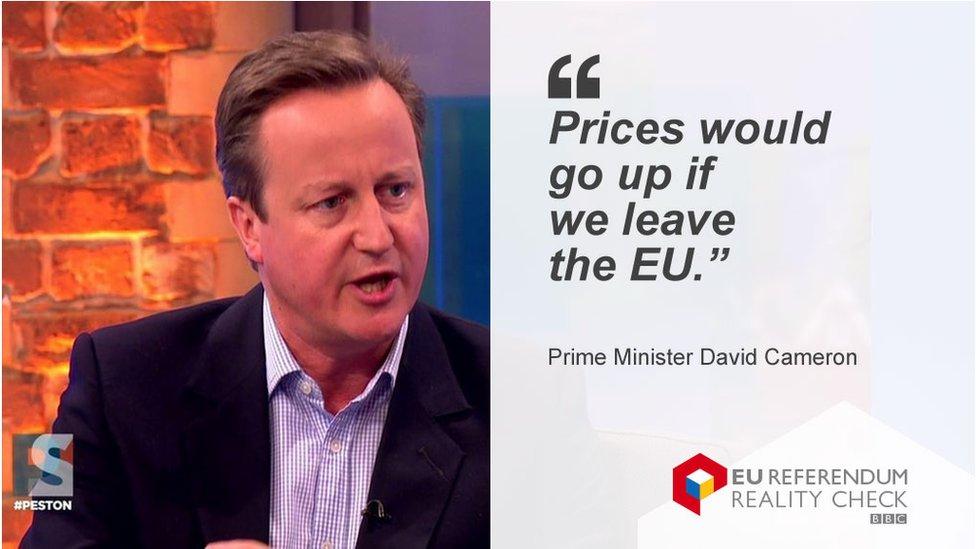Reality Check: Would Brexit push up prices?
- Published

"Prices would go up if we leave the EU" - David Cameron
The claim: David Cameron said on 22 May that the prices in shops would rise if we leave the EU.
Reality Check verdict: There is a consensus that Brexit would lead to a weaker pound. This would have an impact on prices over time, although it is difficult to quantify the impact precisely at this point in time.
, the prime minister said the cost of food and drink would rise by almost 3% if Britain left the EU, equivalent to an extra £120 a year for the average family, and the cost of the clothes and shoes prices would increase by 5%.
He repeated this claim - - in the Peston on Sunday interview.
The Treasury says it looked into a number of external studies which estimated that leaving the EU would lead to a fall in the value of the pound of 12%.
Economists, including those in the agree that the exchange rate would fall if the UK left the EU.
Reality Check has looked into the impact the referendum had already had on the weakening of the pound and found it was likely to be a contributing factor.
The Treasury's report used a complicated formula to calculate the impact of a weaker pound on the cost of a typical food and drink shop, as well as of clothing and footwear, for a family of four.
The , and £38.20 a week on clothing and footwear. The Treasury says Brexit would increase the price of food and drink for the average household by about £120 a year by 2018. The cost of clothing and footwear would increase by almost £100 over the same period.
The Treasury said it looked at the prices over a two-year period, pointing out that a weaker pound would start to have an impact on the cost of imports relatively quickly, but the effect on the consumer prices would take some time to pass through.
- Published22 February 2016